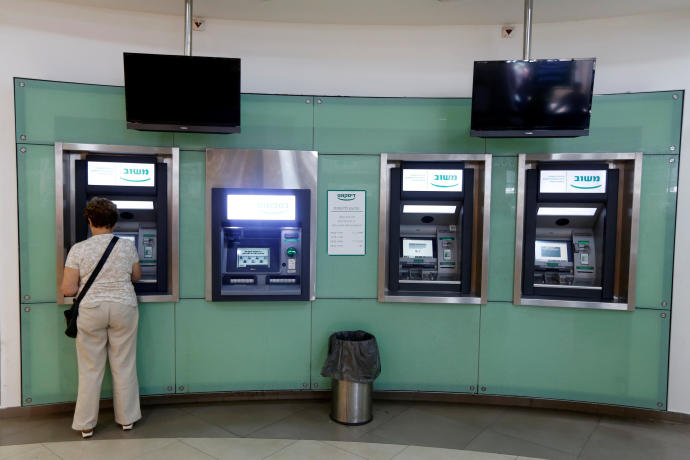The Monetary Committee of the Bank of Israel announced its decision to raise the interest rate in the market on Monday.
In the background of the announcement, Anat Davidov and Yael Ayalon spoke with Prof. Moshe Hazan, a member of the Monetary Committee, he commented at length on the state of the Israeli economy, saying that "we must put our feet on the brakes and slow down the speed at which the economy is progressing."
What is the state of the Israeli economy?
"The state of our economy is excellent," Hazan said, "last week the national accounting data was published, which we compared with older data, we saw that, in fact, we are already three quarters above the trend line that was expected before the corona crisis. The activity in the economic system is very strong. At the same time, we are seeing a slight increase in inflation, a little above 5% and it is clear to us that we must cool down the economy."
"Is there a contradiction here? We don't understand," Davidov and Ayalon asked.
"Certainly there is no contradiction," replied Hazan, "when the economy is in such a good and strong condition, there is a demand for workers - and there are no workers to fill the jobs. People have high incomes and they want to spend that income on products and services, this is what ultimately fuels the rise of prices, therefore, we must put a foot on the brakes and slow down the speed at which the economy advances."

"The shekel is getting stronger - don't you fear for the exporters?", the two asked.
The member of the committee answered that "at the moment we are not afraid of damage to operations. The thing that worries us is the inflationary process and it is imperative to stop it and vice versa - it allows the import products to be discounted, some of them automatically like flights abroad, and some in a slightly slower process through the fact that imported products become cheaper."
He referred to the inflation situation in the world and the possibility of raising the interest rate higher than they had already, and said: "I think that the Bank of Israel started monetary tightening among the first banks as early as 2021, we stopped the intervention in the field of foreign exchange, we stopped loans that we gave to banks so that they would give loans to small businesses and we started raising interest rates."
"Inflation in Israel is in the lowest tenth among OECD countries," he continued. "The forward forecast is that inflation is only expected to fall towards the center of the projected goal. The forecasts we are working against are such that we are currently at a peak, and even if the decline is not monotonous, we do not expect it to go beyond the current rate. It is good that people have income in hand, we need to cool the enthusiasm and the speed a bit where the economic activity takes place in order to slow down the process of inflation."
"Inflation in Israel is in the lowest tenth among OECD countries."
Prof. Moshe Hazan
Israel's housing market
Regarding the housing market, he said that "the opinion of the relevant bodies was and remains that the real treatment of apartment prices is through supply. We saw in the first quarter of the year a very large increase in the start of construction for housing projects, we hope that the supply will respond. Regarding the increase in interest rates, it may be possible to a certain extent that it will moderate the increase in prices but this is not the tool that should deal with the rise in apartment prices."
Hazan also said: "Letting inflation continue to run rampant is the worst thing we can do to the economy. It harms the purchasing power of the public, economic activity and especially people in weaker socioeconomic brackets. Therefore, raising the interest rate is good for everyone who is anxious for the continuation of good economic activity in the economy, especially in the weaker strata."
"If you see that the data stabilizes - will you consider lowering rates?" Davidov and Ayalon asked.
"No," Hazan answered, "we are still in the middle of the tightening process. In the previous decision, the forecast of the research division was that we would reach an interest rate of two percent and 75 tenths in the second quarter of 2023. I assume that the tightening will continue and if there are encouraging signs we will be happy to stop the tightening As quickly as possible. The interest rate tool is a stop that you try to put so that the train doesn't gallop too fast."
